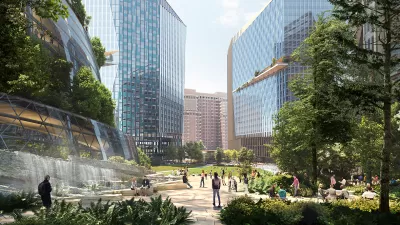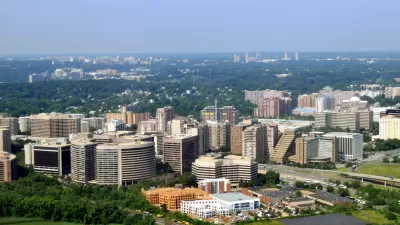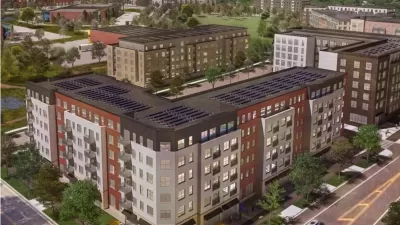A lack of architectural ambition and a focus on car transportation are two of the criticisms that have followed Amazon's initial plans for its second headquarters in Northern Virginia.
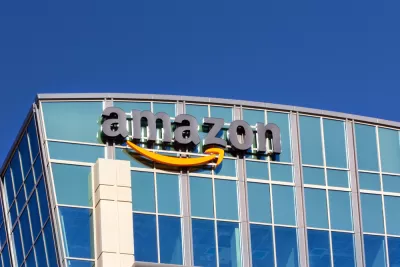
Members of the Northern Virginia communities surrounding Amazon’s new headquarters in Pentagon City are pressing for the company's plans to make more room for non-automobile forms of transportation.
"Several dozen residents and community group representatives urged the company to take a stronger stance on pedestrians and public transit during a site plan review at the Aurora Hills Community Center (735 18th Street S.) Tuesday night," according to the article.
The initial plans for Amazon's second headquarters [pdf] have been making the rounds since July, in the form of a site plan for what's now called metropolitan Park. A July article by Vernon Miles describes the plan as "colorful but unambitious."
"Amazon’s proposal involves the construction of two new office buildings at the corner of 15th Street S. and S. Eads Street — almost the perfect midway point between the Pentagon City and Crystal City Metro stations. The project is part of the first phase for Amazon’s permanent offices opening in Arlington," according to Miles back in July.
Fast forward to September, and public engagement has focused on the car-centric nature of the plans under review. "Amazon’s plans for its new headquarters, including an underground parking garage with 1,968 parking spaces, remain unchanged," according to the most recent article. Other car-centric components of the plan are listed as follows:
- A pick-up and drop-off zone for ride hailing services like Uber and Lyft at the intersection of Eads Street and S. Elm Street.
- A drop-off zone for a daycare center in the park, also located on S. Elm Street.
- Street parking for cars along S. Eads Street, 15th Street S., and S. Elm Street.
FULL STORY: Community: Amazon Headquarters Needs Protected Bike Lane, More Buses

Planetizen Federal Action Tracker
A weekly monitor of how Trump’s orders and actions are impacting planners and planning in America.

USGS Water Science Centers Targeted for Closure
If their work is suspended, states could lose a valuable resource for monitoring, understanding, and managing water resources.
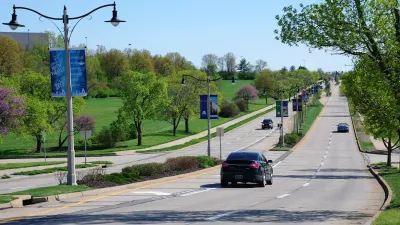
End Human Sacrifices to the Demanding Gods of Automobile Dependency and Sprawl
The U.S. has much higher traffic fatality rates than peer countries due to automobile dependency and sprawl. Better planning can reduce these human sacrifices.

Seattle Transit Asked to Clarify Pet Policy
A major dog park near a new light rail stop is prompting calls to update and clarify rules for bringing pets on Seattle-area transit systems.

Oregon Bill Would End Bans on Manufactured Housing
The bill would prevent new developments from prohibiting mobile homes and modular housing.

Nashville Doesn’t Renew Bike Share Contract, Citing Lost Federal Funding
The city’s bike share system, operated by BCycle, could stop operating if the city doesn’t find a new source of funding.
Urban Design for Planners 1: Software Tools
This six-course series explores essential urban design concepts using open source software and equips planners with the tools they need to participate fully in the urban design process.
Planning for Universal Design
Learn the tools for implementing Universal Design in planning regulations.
City of Moorpark
City of Tustin
Tyler Technologies
City of Astoria
Transportation Research & Education Center (TREC) at Portland State University
Chaddick Institute at DePaul University
Regional Transportation Commission of Southern Nevada
Toledo-Lucas County Plan Commissions


























